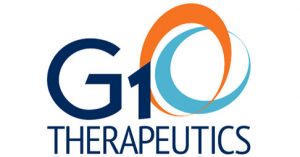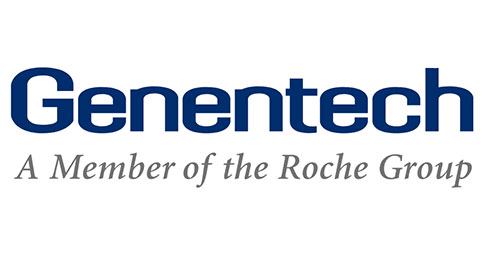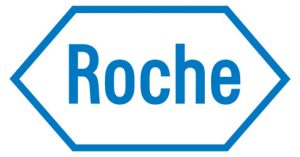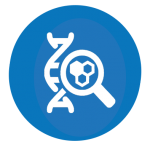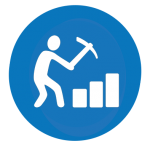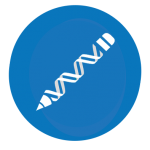Do you need to find relevant data sets to further your research? Or do you want to pinpoint the exact insights within a data set that will inform your next steps? Fios Genomics can help!
Bio Data Landscaping
There are now vast amounts of bio data available in the public domain that can be effectively mined for specific biological questions of interest. Since public domain data can be used for hypothesis generation, it can dramatically reduce the time and costs associated with wet lab experimentation and data generation. Moreover, in many cases, public datasets provide a great resource for the validation of in-house findings. However, it can be challenging to find relevant data from a wide range of available sources. We can perform data landscaping to identify relevant public data sets for your study as well as summarise relevant information about the data so you can see what could be used for downstream analysis.
Bio Data Mining
Once suitable data sets are identified, Fios Genomics can access the data and apply robust quality controls. This way we can provide the best starting point for downstream analysis and investigation. Our team has experience with meta-analyses where data and outcomes from several studies are combined and harmonised in order to increase the overall statistical power. We can perform bio data mining using standard or bespoke workflows.
What We Offer
Our team can curate data sets from a range of publicly available sources and databases. We can also assist in identifying suitable sources as starting points for dataset identification. For data landscaping, we will automatically retrieve metadata for each data set such as omics type, associated publications, or sample numbers, and reports can be extended to include any metadata of interest provided by the public databases. A dedicated bioinformatician will tune your queries as well as assess the results to ensure we report the most relevant data sets available. We can then use bio data mining approaches to re-analyse the data sets you are interested in, applying any of our standard data analyses or implementing bespoke analyses as needed.
Benefits of Working with Fios Genomics
Searching for public bio data can be daunting and time-consuming, since each database has different search interfaces and returns different metadata. However, Fios Genomics has expertise in querying many public databases and harmonising metadata to provide a unified list of relevant data sets. We can also re-analyse data sets of interest using standard or bespoke analysis pipelines, using our statistical knowledge to ensure the data sets are harmonised appropriately.
When you work with us you will also benefit from:
Dedicated Bioinformatician
A dedicated bioinformatician, backed by an experienced bioinformatics team, will curate all data, identify the most appropriate statistical approach to take and provide a biological interpretation of results
Interactive Data Analysis Report
Receive a searchable data analysis report that includes interactive visualisations of the data. Our reports are internally peer-reviewed and include analysis methods and results (particularly helpful if you plan to publish your research results)
Post-Report Follow-Up
Upon receipt of our data analysis report, we arrange a review call so that your project’s dedicated bioinformatician can talk you through the results and answer any questions you have about the report
Dedicated Project Manager
Your dedicated Project Manager will act as your single point of contact throughout the project. They will ensure everything from data transfer to report delivery runs smoothly and efficiently for you
Large Capacity Computing
When you choose Fios Genomics, you benefit from our large capacity computing and secure data storage facilities, where we store all your raw data, analysed data and your data analysis report
Why are bio data landscaping and mining right for you?
There are many useful benefits of bio data landscaping for your research:
- It eliminates the cost of generating your own data. Public databases have been collecting scientific data for decades. Therefore, it is highly likely there is relevant data already available that can be used to avoid running your own experiments.
- It speeds up your research process. Surveying public data can help you to focus on previously unasked questions and invest your resources in the most crucial new experiments.
- It ensures that you find the most relevant available data sets for your research. Since there are so many data sets publicly available, tuning searches and filtering search results is essential. Therefore, we will apply our years of experience with many public databases to make sure you can focus on the most important data sets.
There are many useful benefits of bio data mining for your research:
- It helps with generating hypotheses. For example, existing data can throw light on your system of interest or provide links to other relevant systems, which can direct your follow up experiments.
- It transforms large datasets into biologically relevant insights to advance your research. Although combining public data sets for meta-analysis is challenging, it can provide previously unknown results that may put you ahead of your competitors.
- It helps make significant discoveries faster and with greater confidence. There are many high quality, systematic public data sets available that provide robust supporting evidence. Handling these data sets can be difficult, but we can help with downloading, filtering and merging data sets of interest.
- It can validate in-house results. Before confirming results with further experiments, it is worth checking if relevant confirmatory data is already available in public data bases.
Our Experience
We have completed many data landscaping projects based on searches of OmicsDI, the Gene Expression Omnibus (GEO), the European Nucleotide Archive (ENA), Biostudies, the European Genome-Phenome Archive, the Proteomics Identifications Database (PRIDE), Metabolomics Workbench, Single Cell Expression Atlas, as well as various other public databases. We have also previously mined data sets from the below public databases, among many others:
- The Cancer Genome Atlas (TCGA)
- Cancer Dependency Map (DepMap)
- Cancer Cell Line Encyclopaedia (CCLE)
- Gene Expression Omnibus (GEO)
- European Nucleotide Archive (ENA)
- Expression Atlas
- Database of Immune Cell EQTLs, Expression, Epigenomics (DICE)
- cBioPortal for Cancer Genomics
- GWAS Catalog
- Human Protein Atlas
We have completed data landscaping projects on a wide range of subjects, such as:
- Immunotherapy studies on a list of PD-L1 inhibitors
- Single cell RNA-seq data sets involving the central nervous system
- GWAS studies of neurodegenerative diseases involving specific genes
- Oncology studies related to deletion of a chromosome arm
- Fibrosis studies involving macrophages grouped by tissue such as lung, kidney and skin
- Muscular tissue proteomics data sets
Projects we have completed and that are specific to data mining include:
- Identifying a variation and several genes associated with vegetarianism in a GWAS using UK BioBank data
- Developing a gene signature for glioblastoma by combining multiple public clinical Nanostring data sets
- Mining The Cancer Genome Atlas in order to identify cancers with a high expression of a target of interest
- Mining the Parkinson’s Progression Markers Initiative (PPMI) database for information to help with identifying drug targets
- Mining a publicly available breast cancer dataset in order to understand gene expression profile changes resulting from knocking out two genes of interest
- Evaluating a known gene signature in Cancer Cell Line Encyclopedia ovarian data sets
- Mining of two published data sets in order to identify overlapping features expressed in cochlea cells
Our Reports
Our analysis reports come as an HTML link hosted on our secure server. The secure link contains a password-protected HTML document that is clickable, searchable, and dynamic. This format allows you to easily interrogate and explore your data. Our reports always include all analysis methods, tools and thresholds.

Example Report for Data Landscaping and Data Mining
In order to demonstrate what you can expect from a Fios Genomics report for data landscaping and mining, we have example reports available. To view these reports contact us and ask for our Data Landscaping and Mining reports.
Our Testimonials
We were very pleased with the service provided by Fios Genomics. In particular, the Fios team were flexible and willing to spend time understanding our specific project needs and the key scientific questions we were asking of the experiments. They tailored the data output in a way that specifically addressed these questions, which was really helpful. The data package was Web-based and interactive and we were delighted with the way it was presented and explained to us. We will certainly work again with the Fios team for any future projects.

Companies We Have Worked With
Request a Quote



